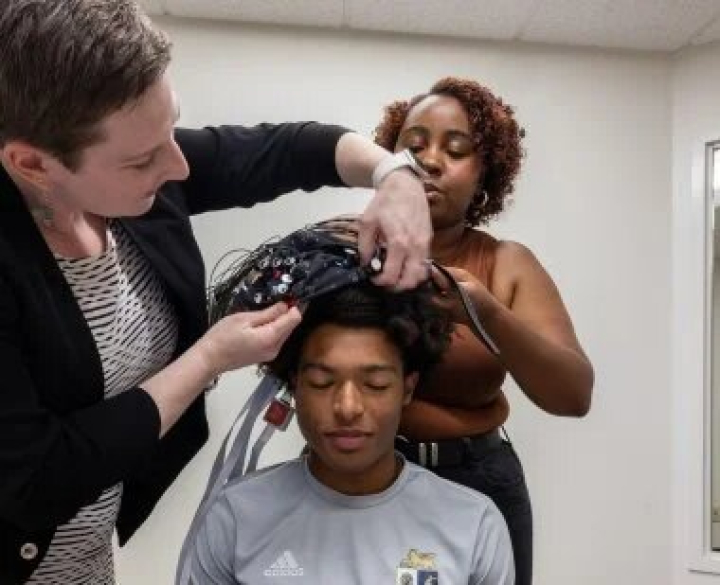An Opportunity to LEAD
The Language, Experience and Development (LEAD) Lab is pursuing innovations to include more people of color in cognitive studies, including hairstyling techniques that optimize how brain activity is measured.
The LEAD lab, led by its Director, Assistant Professor Rachel Romeo, embarked on this work after noticing a barrier to inclusion posed by the technology she used for her research into how early experiences affect cognitive development. Functional near-infrared spectroscopy (fNIRS) uses light beams delivered through a cap studded with sensors to track neural blood flow. But the caps were designed for people with fair skin and thin, light-colored hair. Because the technology uses light passing through the skin and scalp, it works less well for people with darker skin tones or Afro-textured hair, particularly protective styles like box braids or locs.
For this and other reasons, Black people are often excluded from neuroscience studies. Romeo sought out best practices to address this issue without harming people’s hair—and couldn’t find any. “We wanted to increase inclusion while also protecting the integrity of the hair in culturally appropriate ways,” she says.
The LEAD Lab is working on two other projects involving families from diverse racial and socioeconomic backgrounds. One project evaluates neural synchrony (the degree to which people’s brains do the same thing at the same time) among preschool children and their caregivers, which is thought to support learning. The lab is collaborating with UMD Computer Science Assistant Professor Christopher Metzler and colleagues from hearing and speech sciences on this $150,000 project, funded through UMD’s Brain and Behavior Institute. The other is a $1 million, National Institutes of Health-funded project exploring the neural bases of language and cognitive development in preschool children.
Click HERE to read the full article
The Department welcomes comments, suggestions and corrections. Send email to editor [-at-] cs [dot] umd [dot] edu.
